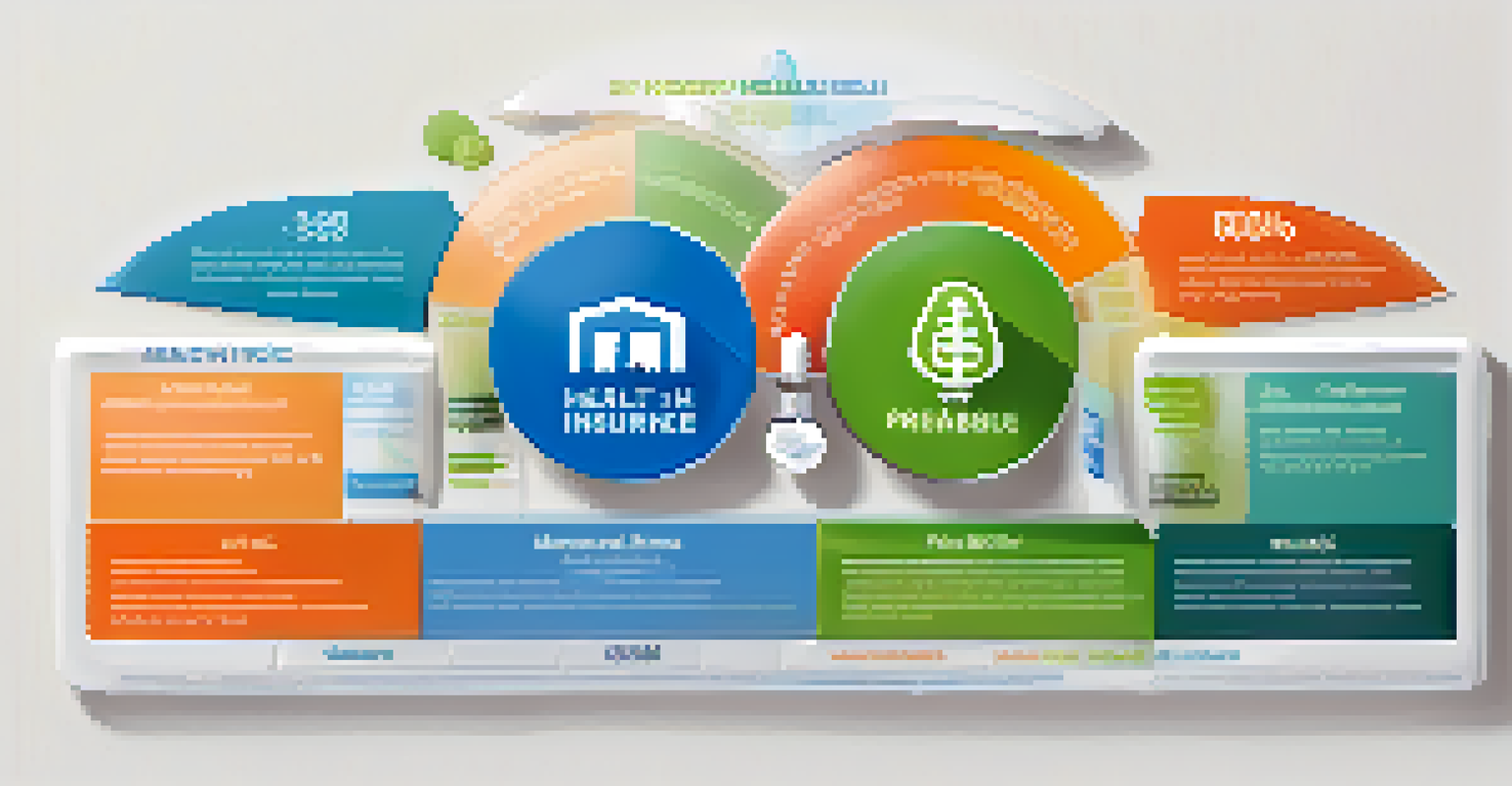Navigating Health Insurance: Tips for Men Seeking Care

Understanding Health Insurance Basics for Men
Health insurance can feel like a complex maze, especially for men who might not prioritize their health. It’s crucial to grasp the basics, such as premiums, deductibles, and copayments. Simply put, a premium is what you pay monthly to have insurance, while a deductible is the amount you need to pay out-of-pocket before your insurance kicks in.
An ounce of prevention is worth a pound of cure.
Navigating these terms is essential for understanding how much you'll pay for care. For example, if your deductible is $1,000, you’ll need to pay that amount before your insurance covers most of your medical expenses. This knowledge can help you budget for medical costs effectively.
As men often prioritize work and family over health, having a solid grasp of these basics equips you to make informed decisions. Think of it like understanding the rules of a game before you start playing; it makes the whole experience easier and less stressful.
Choosing the Right Plan for Your Needs
When selecting a health insurance plan, it’s important to consider your specific health needs. Do you have a chronic condition, or are you generally healthy? Plans often differ in coverage for preventive services, specialist visits, and emergency care, so understanding your needs will guide your choice.

For example, if you visit a specialist frequently, a plan with lower copayments for specialist visits might save you money in the long run. Conversely, if you’re young and healthy, a high-deductible plan could be more cost-effective, provided you can handle the out-of-pocket expenses if they arise.
Understand Insurance Basics
Grasping terms like premiums, deductibles, and copayments is essential for making informed healthcare decisions.
Ultimately, the best plan is one that aligns with your lifestyle and health requirements. Take the time to compare options and think critically about what you need, rather than just opting for the cheapest plan available.
Finding In-Network Providers
One of the most effective ways to save on health care costs is to choose in-network providers. These are doctors and hospitals that have agreements with your insurance company to provide services at lower rates. By opting for in-network care, you can significantly reduce your out-of-pocket expenses.
Health insurance is not a luxury; it is a necessity.
For instance, if your insurance offers a $25 copayment for in-network visits but $100 for out-of-network ones, sticking to in-network providers makes financial sense. It’s like buying from a store that offers discounts for member purchases rather than paying full price elsewhere.
To find in-network providers, check your insurance plan’s website or call their customer service. This simple step can help you avoid unexpected bills and ensure you get the most out of your coverage.
Utilizing Preventive Care Benefits
Preventive care is often covered at no cost under many health insurance plans, making it a powerful tool for maintaining health. Services like annual check-ups, vaccinations, and screenings can catch issues early, saving you money and potentially serious health risks down the line.
For example, a routine cholesterol screening can reveal potential heart health risks before they escalate. By taking advantage of these benefits, you’re not just protecting your health; you’re also being financially savvy, as these services won’t hit your deductible.
Choose the Right Plan
Select a health insurance plan that aligns with your specific health needs to avoid unnecessary costs.
Remember, staying proactive about your health is a smart investment. Regular check-ups can lead to better health outcomes and lower long-term medical costs.
Understanding Prescription Drug Coverage
Navigating prescription drug coverage can be a tricky part of health insurance, but it’s essential for managing your health effectively. Each plan has its own formulary, which is a list of covered drugs, and understanding it can save you from unexpected costs at the pharmacy.
For instance, some plans may cover generic medications at a lower cost than brand-name ones. If you’re prescribed a medication, don’t hesitate to ask your doctor about generic alternatives that can provide the same benefits at a fraction of the price.
Being aware of your prescription coverage not only helps in budgeting for medications but also encourages you to make healthier choices. It’s all about being informed so you can make the best decisions for your health and wallet.
Managing Out-of-Pocket Expenses
Even with insurance, out-of-pocket expenses can add up, so it’s vital to manage these costs wisely. Start by keeping track of your medical expenses throughout the year, including copayments, deductibles, and any services not covered by insurance.
For example, if you know you’ll need physical therapy for an injury, budgeting for those sessions can prevent financial strain later on. Additionally, many plans offer Health Savings Accounts (HSAs) that allow you to save money tax-free for medical expenses.
Utilize Preventive Care
Taking advantage of preventive services can lead to better health outcomes and lower long-term medical costs.
Being proactive about managing these expenses can help you avoid surprises and ensure you’re prepared for whatever health challenges may arise. It’s about being strategic and informed.
Knowing Your Rights and Resources
Understanding your rights as a patient is crucial when navigating health insurance. You have the right to receive clear information about your coverage, and if you feel your needs are not being met, don’t hesitate to advocate for yourself.
Resources like the Patient Advocate Foundation and state insurance departments can provide support and guidance. For example, if a claim is denied, these organizations can help you understand the appeals process and what steps to take next.

Empowering yourself with knowledge and resources can make a significant difference in your healthcare journey. Remember, you deserve quality care and support, so don’t shy away from seeking help.